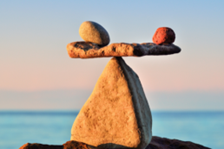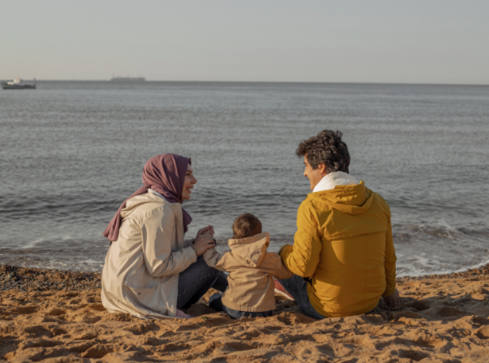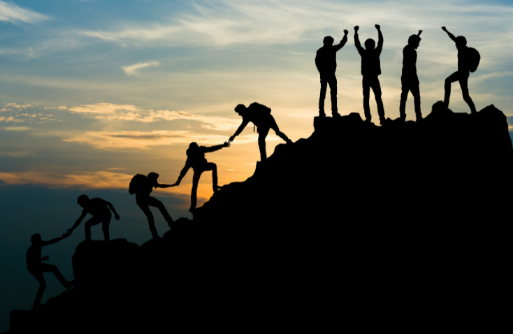
IMW 2025 Report: The Role...
Intercultural Mobility Week is a national event led by USCRI Mexico’s Network of Committees for Integration and Welcome (ReCIBE), a...
READ FULL STORY
January is National Mental Wellness Month. So, what is mental wellness and how does it differ from mental health? Mental health mostly pertains to our brain’s health and our overall functioning, whereas mental wellness is a broader term that covers all aspects of mental, emotional, social, and psychological stability and healthy functioning, recognizing the integrated and holistic nature of health and well-being. Mental wellness is an active process that emphasizes the capacity to build resilience, reduce suffering, find peace and joy, and seek meaning, purpose, and connection (GWI, n.d.). Proactively engaging in mental wellness means that when circumstances change, there is a need to adopt new practices or strategies to handle stress, improve resilience, and deal with adversity.

Severe stress exposure is a key predictor of mental health, and war trauma, torture, natural disasters, and forced migration rank among the most traumatic
life experiences. In 2022, these experiences forced 108.4 million people worldwide to flee their homes (UNHCR, 2023). Refugees and other forcibly displaced populations are at a high risk for common mental health conditions and psychosocial problems due to trauma and violence experienced in their home country, during migration, and after resettling in a host country. Although most refugees and other forcibly displaced people show remarkable resilience given all they have endured, research has found high rates of posttraumatic stress disorder (PTSD), depression, and anxiety among adults and children (Bunn et al., 2023). Growing evidence indicates that post-migration stressors, such as food and housing insecurity, a lack of host country language proficiency, unemployment, and social exclusion significantly impact mental health outcomes and accumulate over time.
Migrants and refugees demonstrate tremendous resilience by surviving adverse and painful experiences. In order to move beyond just surviving to thriving and excelling in a new environment, migrants and refugees can incorporate strategies and practices to further build resilience and strengthen their mental wellness.
Manage Stress. Stress is a natural response to a challenge or demand. Stress can come from day-to-day pressures of work, family, or parenting, as well as from sudden negative changes in life or traumatic events. When stress becomes severe, lasts a long time, and results in feeling overwhelmed and unable to cope, it can harm our health, cause changes in mood, and negatively impact other areas of life. The first step in managing stress is to recognize the signs that indicate that stress beyond a normal level, such as difficulties sleeping, headaches, changes in appetite that lead to weight gain or loss, becoming easily angered, low energy, or feeling depressed or hopeless. Once you know the signs, you can take practical steps to develop healthy habits that reduce stress, like getting enough sleep (7 or more hours a night), walking for 30 minutes a day or some other form exercise, and regularly eating well-balanced meals.
Strengthen Social Support. Social support is a key factor for the mental wellness of migrants and refugees.

Social support has been shown to strengthen migrants’ and refugees’ resilience, promote social integration, mental wellness, a
sense of belonging, reduce stress, and buffer against poor mental health (Brydsten et al., 2019). Looking for ways to get
involved with others in the neighborhood, community, or ethnic diaspora can help refugees navigate the new environment, connect with key resources, build relationships, and foster mutual understanding and empathy, which in turn can help reduce anxiety and loneliness and help migrants and refugees gain a sense of control and support their cultural identity.
Cope with Losses. From the loss of loved ones, the loss of one’s home country, culture, and a whole way of life to a lack of a sense of belonging and support network, grief in the context of forced migration is complex and multi-layered. The feelings of sadness, loneliness, anger, and/or grief are all normal responses to loss. Everyone grieves in their own way and time. Grief is a process of letting go and learning to accept, adapt, and live with the loss by finding meaning in life and ways to re-envision possibilities for happiness. Connecting to the people and things that are most important can help with enduring the emotional pain and eventually healing.
Build Resilience. The things that help us survive and grow during stressful periods and through adverse experiences builds resilience. Resilience is the ability to bounce back from adverse experience

s, cope with stress, and succeed and thrive in the face of adversity. Doing something every day that we enjoy, like listening to music, reading a book, or tending to a garden, can help build resilience. Look at problems from a different lens and practice gratitude by seeing the positive things to be thankful for. Resilience can also be built by using resources that are available to you, such as asking for help, engaging in cultural practices that bring you comfort, or expressing your feelings to someone you know instead of bottling them up.
Practice Mindfulness. Mindfulness is an ancient practice of being completely aware of what is happening in the present moment without judgment – everything that is going on inside you (your thoughts, feelings, sensations) and everything that is happening around you (your environment). Becoming more mindful requires practice and commitment. Just a few minutes each day spent training your mind to focus on the present moment is all that is needed to start. Mindfulness can involve sitting in a quiet space and focusing on your breathing or it can be integrated into daily activities like walking or eating. Whatever practice you decide to use, mindfulness has a myriad of positive health benefits from reducing anxiety and depression, lowering blood pressure, and improving sleep to making healthier choices and adopting healthier habits.
Recognizing the signs of and managing stress, creating healthier habits, building social supports, strengthening connections, coping with losses, and becoming more mindful are ways migrants and refugees become more resilient and thrive in their new communities.
If you are having trouble moving forward, feel unable to cope, or have thoughts of harming yourself, please talk to a healthcare professional immediately.
If you or someone you know is thinking about suicide or would like emotional support, call or text 988, the Suicide and Crisis Lifeline that is available 24/7. If you or someone you know is having a life-threatening emergency, please call 911 or go to your nearest hospital emergency room.
For resources or more information about USCRI’s Refugee Health Services program for resettled Afghans, please visit: https://refugees.org/the-behavioral-health-support-program-for-afghans/ .
References
Brydsten, A., Rostila, M., & Dunlavy, A. (2019). Social integration and mental health – a decomposition approach to mental health inequalities between the foreign-born and native-born in Sweden. International Journal for Equity Health, 18, 48. https://doi.org/10.1186/s12939-019-0950-1
Bunn, M., Khanna, D., Farmer, E., Esbrook, E., Ellis, H., Richard, A., & Weine, S. (2023). Rethinking mental healthcare for refugees. SSM – Mental Health, 3, 100196. https://doi.org/10.1016/j.ssmmh.2023.100196.
GWI (Global Wellness Institute). (n.d.). What is Mental Wellness? Retrieved from https://globalwellnessinstitute.org/what-is-wellness/mental-wellness/
UNHCR. (2023). Global Trends: Forced Displacement in 2022. Retrieved from https://www.unhcr.org/global-trends-report-2022

Intercultural Mobility Week is a national event led by USCRI Mexico’s Network of Committees for Integration and Welcome (ReCIBE), a...
READ FULL STORY
Why Are We Asking You to Keep Eyes on Sudan? The people of Sudan are suffering a crisis escalating...
READ FULL STORY
Arlington, VA — [November 20, 2025] — Today, more than 60 national, state, and local organizations that work with immigrants and refugees across the United States joined together to urge the U.S. Government...
READ FULL STORY